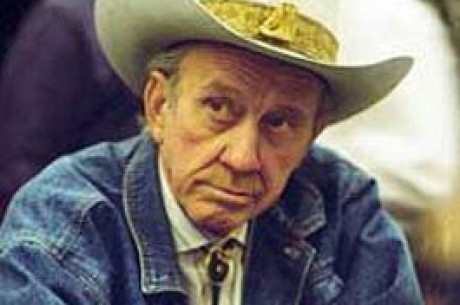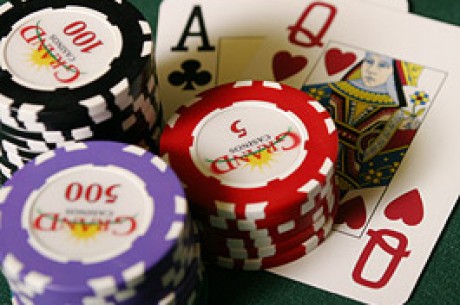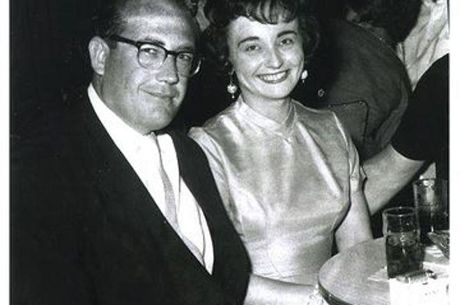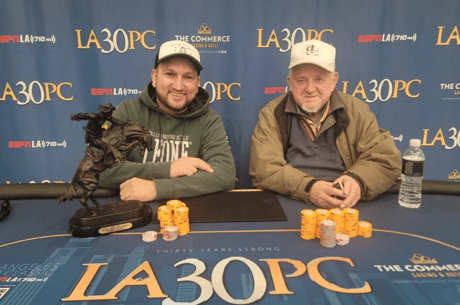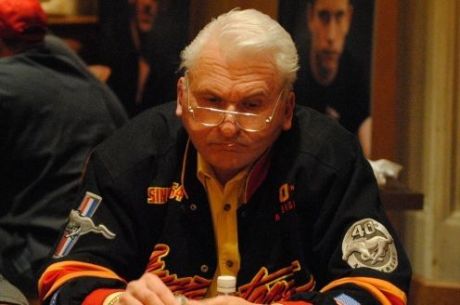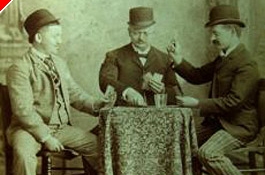A Quarter Century of Poker: David Sklansky and Albert Einstein
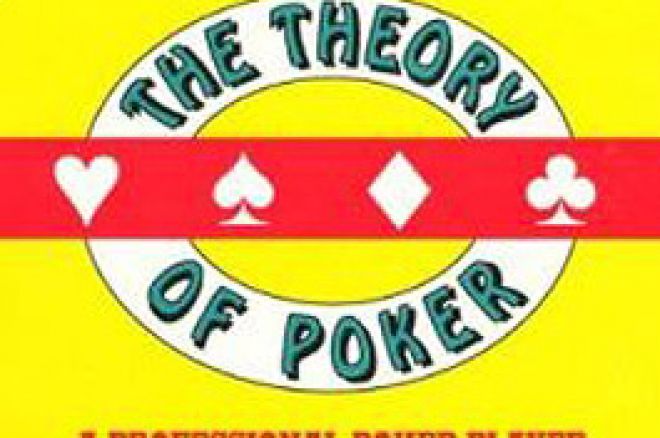
Poker players are like scientists. Some are very good at postulating about different aspects of the game, while others toil away like lab rats in a maze, following the same routine every day and dragging the pot only when the conditions are right.
Albert Einstein didn't play poker. In fact, he spent so much of his time theorizing about everything around us that he shut out most normal aspects of human life while working. More than once this great thinker was seen by a doctor for shooting pains in his abdomen, and more than once Einstein realized after a few questions from the doctor, that he had forgotten to eat for more than a day or two. However, he is noted for stating "God doesn't play dice with the universe," which is to say that things happen for a reason - not haphazardly. This point of view is also taken by David Sklansky, who also postulated something important to the world (or at least to the poker world).
Sklansky gives his own views in his book, The Theory of Poker, as such:
'Every time you play a hand differently from the way you would have played it if you could see all your opponents' cards, they gain; and every time you play your hand the same way you would have played it if you could see all their cards, they lose. Conversely, every time opponents play their hands differently from the way they would have if they could see all your cards, you gain; and every time they play their hands the same way they would have played if they could see all your cards, you lose.'
Sure, boiled down, this means you could make all the best plays if you could see your opponents' hands, but what it infers is you also have the chance to make that "best" play if you are adapting your play to that of your opponents. If you are sitting at a game and watching the latest sports scores, great (at least for the other players), however, you are costing yourself money in the long run. You have to watch the game you are playing in.
A lot has been written about how to play AK, and yet I see players misplay this holding more than any other hand, even more than AA. AK is still a drawing hand, it's not complete, and won't often win a significant pot without improving - AA is complete, and can win a significant pot without improving. Many experts say they always put in a bet on the flop, even when they miss, if they bet or raised preflop with AK. However, other noted pros such as Dan Harrington say they will give up on the flop if they miss - and may well check or fold to a raise. So, who's right?
If you haven't figured it out yet, they both are, but it depends on their opponents and how those opponents view the AK holder's play. The most important thing is to be adaptable. You can't play any hand of poker the same every time, or you cost yourself money in the long run. If you don't believe this, go back and reread the theory of poker.
If you still aren't catching on, perhaps this quote from Einstein will help: "Insanity is repeating the same experiment over and over again and expecting a different result."
If you are playing AK for a reraise and a bet or raise on every flop, turn and river, and wondering why you just aren't making any money with what is an excellent hand, you are a poor scientist. Stop playing the same every hand. Start watching the game and your opponents, and start adapting your play to them. If you can't do this, you can still pick up a few pots, but you are doomed to life in the low-limit maze.
The next time you get rewarded with a pot, ask yourself if you really made all the right moves. Did you win the most you could have? Did you unnecessarily risk the pot by missing a bet, raise or check-raise? Can you play the same hand differently in the future and make more by adapting to your opponents and varying your play?
If you don't know, then be a scientist and think about the possibilities and try some experiments. Just because a play worked, doesn't make it the best play, every time, in every situation. Sometimes you should lay back, and other times you should attach.
Doyle Brunson likes to call this "changing gears." If you are always in the fastest gear, believe me, you often won't arrive alive at the river. By the same token, if you are always in low gear you can't ever finish first. Learn to experiment, throw out the bad theories, keep the good ones, and adapt to every game. That's what poker's all about - playing the right way at the right time, not playing the same way every time. Remember, Einstein also said, 'Imagination is more important than knowledge.'
Ed Note: Albert Einstein would have liked the action at Everest Poker

